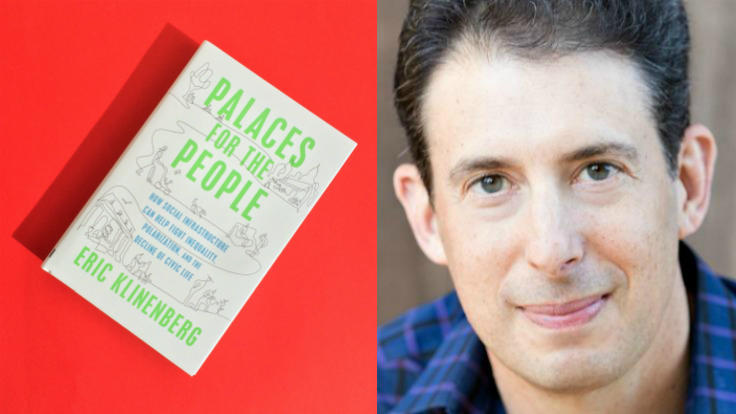“Libraries don’t just provide free access to books and other cultural materials,” says sociologist, bestselling author, and speaker Eric Klinenberg, whose just-released book, Palaces for the People, excerpted in The New York Times Opinion section this week, makes the compelling case that libraries, parks, churches, and other community spaces, are absolutely crucial to the future of American democracy.
“[Libraries] offer things like companionship for older adults, de facto child care for busy parents, language instruction for immigrants and welcoming public spaces for the poor, the homeless and young people,” he explains. Libraries are an example of what Klinenberg calls social infrastructure: “the physical spaces and organizations that shape the way people interact.” Libraries, parks, churches, bookstores, they don’t just improve communities and fortify daily life, they contribute to economic growth and protect our democracy.
“The problem that libraries face today isn’t irrelevance,” he writes in the Times. “In New York and many other cities, library circulation, program attendance and average hours spent visiting are up. The real problem that libraries face is that so many people are using them, and for such a wide variety of purposes, that library systems and their employees are overwhelmed,” he says.
“Today, as cities and suburbs continue to reinvent themselves, and as cynics claim that government has nothing good to contribute to that process, it’s important that institutions like libraries get the recognition they deserve. It’s worth noting that ‘liber,’ the Latin root of the word ‘library,’ means both ‘book’ and ‘free,’” says Klinenberg.
In Palaces for the People: How Social Infrastructure Can Help Fight Inequality, Polarization, and the Decline of Civic Life (which you can likely find on the shelves of your library) and in his talks, Klinenberg proves that if we have any chance of rebuilding a better society, “social infrastructure like the library is precisely what we need.”
